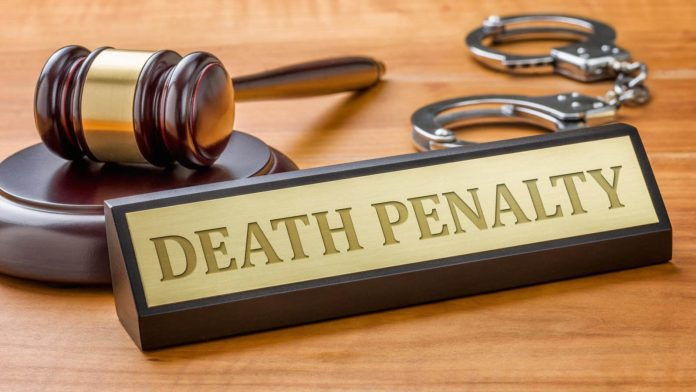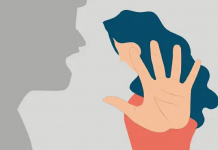This article is written by Shashwat Kaushik, from CCS University. This article gives an explanation of the Constitution of Malawi with reference to the case of Charles Khoviwa vs The Republic Of MSCA
Table of Contents
Right to life is the mother of all rights – a discussion
Everyone in this world has the right to life, it is the basis of all other fundamental rights. Any person or citizen could claim it, even a foreigner, though it does not give him the right to settle in the respective country.
Death punishment has been declared illegal by Malawi’s Supreme Court of Appeals. The Court expressed in its decision that the right to life is defined by the sanctity of life itself. The right to life is the most significant of all, and without the right to life, no other rights exist. Death punishment not only ignores the effectiveness of the right to life but yet, in addition, eliminates it. The Court mentioned this observable fact while granting an appeal filed by a man named Khoviwa who had been condemned to death. The larger part of judgments created by Justice DF Mwaungulu noticed that the Malawian Constitution doesn’t accommodate capital punishment rather it is considered as disparaging to the right to life.
In this article, we will be discussing the case of Charles Khoviwa who was sentenced to death but later his death sentence was commuted to life imprisonment.
The case of Charles Khoviwa v. The Republic MSCA
Background
The case involves a man who was sentenced to death under Malawi’s Constitution’s Section 210, but his death sentence was commuted to life imprisonment by the President. In the concept of punishment, the most serious punishment is considered a death sentence. A lot of countries allow the death sentence in their jurisdiction. However, it is considered disparaging to the right to life. In some exceptional circumstances, India also considers the death penalty. However, various legal provisions provide life imprisonment as the maximum punishment. Recently, the Malawi Supreme Court held it disparaging to life to give a death sentence even in capital offenses. The legal functioning of the country has magistrates or lower Courts at the ground level followed by the High Court and the Supreme Court. The magistrate’s Court also heard capital cases like rape, etc. but could not give death sentences, for that cases needed to be taken to the higher courts.
Facts of the case
This case dealt by Justice Chipeta concerns Charles Khoviwa, a Malawian resident who was held guilty of murder by the Malawian High Court in 2003 and was sitting on a delayed death sentence for many years in a row. At that time capital punishment was binding for capital offenses.
Soon he appealed in the Supreme Court against his conviction and death sentence. Nevertheless, he lost his appeal and has been sitting on a death sentence since then. Khoviwa again filed for a rehearing in the High Court but it was rejected, as the Supreme Court had already given the sentence for his trial. However, in the wake of that decision, and despite the fact that the Supreme Court of Appeal had in 2010, ruled that the sentence of all convicts on death row should be reconsidered, the High Court said his death sentence was unappealable”.
Although Malawian law has undergone certain changes which now:
- Considers the death penalty disparaging right to life.
- In the trial case of such an issue, appellants are given re-hearing in certain sentences.
- The Court expanded the re-hearing to all the appellants who have been given death when it was considered as a mandatory punishment.
Khoviwa went back to the Supreme Court in February 2018, appealing against the high Court’s decision, but that appeal got delayed. This delay has always been a problem on the part of the government or the judges of the Court. In the meantime, he returned to the Supreme Court appealing to grant permission for bail on account of delayed judgment. The Supreme Court of Appeal Act states that the Court may “if it deems fit”, give bail to an appellant “pending the determination of his appeal”. This was quintessence for Khoviwa’s case and he could ask for bail on grounds of this provision.
His appeal was heard a few months back. Khoviwa showed a good mark that his punishment could be reduced to a fixed term. Now a single judge has decided to grant bail to him mentioning that this is not his fault that the judgment he stands by is being delayed. After Serving a long time of 18 years in prison he may now wait at home for further notice that the re-hearing will be considered in his case or not. His bail also came with certain conditions, like Khoviwa paying the bail bond and securities, surrendering his travel papers, reporting to the police on a daily basis, and not moving outside of the home area.
Judgment
“The essence of the right to life is life itself — the sanctity of life. The right to life is the mother of all rights”- The Court observed in its decision.
The judgment reads that the Constitution considers the death penalty as a derogation from the right to life in a direct and undoubtful way. The essence of Section 25, 26, and different sections that endorse capital punishment for criminal offenses are disparaging to the right to life itself. Capital punishment is prohibited under Section 45(1) of the Constitution of Malawi’s supreme law because it is a criticism of the right to life. Surprisingly, after the legislature amended, Section 25 of the Penal Code in 2011, corporal punishment was abolished despite the provision in Section 19(2)(b) of the Constitution, and capital punishment was retained despite the fact that derogations from the right to life under Section 45(1) and (2)(B) of the Constitution could not be made.
Further, the Court held that Section 25(a) and Section 26 of the Penal Code pacifies death as one of the punishments. Section 38 (1) (for treason), Section 133(for rape), Section 217A (2) (a) (for genocide), Section 63 (1) (for piracy), Section 210 (for murder), Section 309 (1) and Section 309 (2) (for housekeeping and burglary) of the Penal Code must be interpreted as meaning the full prison term-life imprisonment. The Court said if life imprisonment becomes the maximum sentence where it isn’t required, it can’t be forced as it is reserved for the most serious crimes. Therefore they are probably going to pass a protracted jail sentence. The individuals who have served in a significant period or have carried out long punishments are bound to get more limited sentences or be released right away.
Constitutionality of death penalty
The death penalty is regarded as a way of punishing for decades for the expulsion of criminals and also for capital crimes. Crimes in which death punishment is sentenced can be constituted as capital offenses. However, a major factor affecting the delivery of a death sentence is the jurisdiction of the country. Some countries like Kazakhstan, Portugal, and Denmark have abolished it while some countries have reserved it for rare cases, as it is disparaging to the right to life which is the basic and most important right of all citizens. In the case of Machhi Singh And Others v. State Of Punjab, the Court set out specific standards for surveying when a case could fall under the ambit of most extraordinary or uncommon. These could be based on the manner of commission of murder, intentions of the murder, when having a totally cruel or inhuman motive behind the commencing of a murder, for instance, killing for a cash reward. Others may include the personality of the victim of murder and the magnitude of the crime. There have always been debates on whether the death penalty should be abolished or conferred as everyone have their sayings or thoughts on this matter.
Death penalty In India
Unlike various other countries death penalty is considered the most deliberate punishment in India. Nonetheless, it is against Article 21 of The Constitution of India. India is considered among 78 countries that have reserved the death penalty for the rarest cases. Though the Supreme Court or the Legislature have still not conferred the definition of the rarest cases. However, some exceptionals are there in Article 21.
There are 11 sections in the Indian Penal Code, which allows capital punishment i.e.,
- Section 120B, Representative of a criminal conspiracy that will be committing a capital offense
- Section 121, Treason for arousing war against the government
- Section 132, Abetment of Mutiny
- Section 194, giving false evidence
- Section 195A, Threatening a person for false evidence contributing to his death
- Section 302, Murder
- Section 305, Encouraging or abetting a minor, insane or intoxicated person
- Section 307(2), Attempted Murder by a serving life convict
- Section 364A, Kidnapping for ransom
- Section 376A, Rape
- Section 396, Decoity and murder
The need or urgency of the death penalty has always been challenged at various occurrences, but this challenge was always rejected by the Court. The first landmark case of aforesaid instance was Jagmohan v State of UP, in which the Court ruled that neither impeachment nor provision of the death penalty would be unjustifiable. Subsequently, in Bachan Singh v State of Punjab, the Court ruled that only in extraordinary cases capital punishment can be given.
Death penalty against humanity
The death penalty should be reserved for ‘rarest of the rare’ cases. As it is considered against the Constitution. Do you think that the case could be re-opened even after the decision of the Apex Court, which is considered binding to the parties being the highest body of justice in Malawian Jurisdiction? Is the idea to scrap the death penalty is adopted as a guardian of human dignity? But, what if a person is related to several murders, rapes, etc, would it be justiciable to give that person the right to life who has put an end to the right to life of several individuals. Here we are talking about the liberty of a person and not any other commercialized matter. Khoviwa could have been out on bail and back to his home, but the question arises: Why did it take too long by the highest Court of justice in Malawi to decide a case which is of such importance. After all the aforesaid instances the President despite the decision in 2010 of death sentences commuted his punishment to life imprisonment.
Conclusion
The Supreme Court not just clarified the instinctual human characteristics of the right to life yet in addition set up a certain system to carry out them. This makes the rule of law heavenly and significant. Every translation or strategy relating to the right to life is especially meant to accomplish equity referenced in the Preamble through the all-around advancement of the people. Every clarification gave endeavors to satisfy the fundamental necessities of the individual while shielding one’s poise. Along with these lines, it isn’t right to say that the penal code is an advanced code in every conceivable way. Laws are made for individuals and they ought to be changed to meet the points and desires of the evolving society. Finally, the goal should be to develop a consensual and reasonable strategy for dealing with impurity without jeopardizing core liberties.
References
- Constitution of The Republic of Malawi
- Constitution of India, 1950
- https://africanlii.org/article/20201118/bail-death-row-prisoner-after-long-appeal-delay
- https://www.lawyersclubindia.com/articles/charles-khoviwa-v-the-republic-death-penalty-
- https://www.livelaw.in/foreign-international/death-penalty-unconstitutional-malawi-supreme-Court-173451
- https://malawilii.org/mw/judgment/supreme-Court-appeal/2021/3
LawSikho has created a telegram group for exchanging legal knowledge, referrals, and various opportunities. You can click on this link and join:
https://t.me/joinchat/J_0YrBa4IBSHdpuTfQO_sA
Follow us on Instagram and subscribe to our YouTube channel for more amazing legal content.
 Serato DJ Crack 2025Serato DJ PRO Crack
Serato DJ Crack 2025Serato DJ PRO Crack











 Allow notifications
Allow notifications


